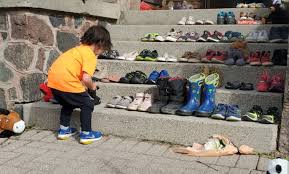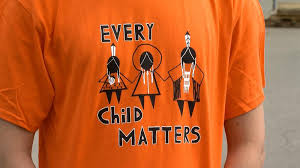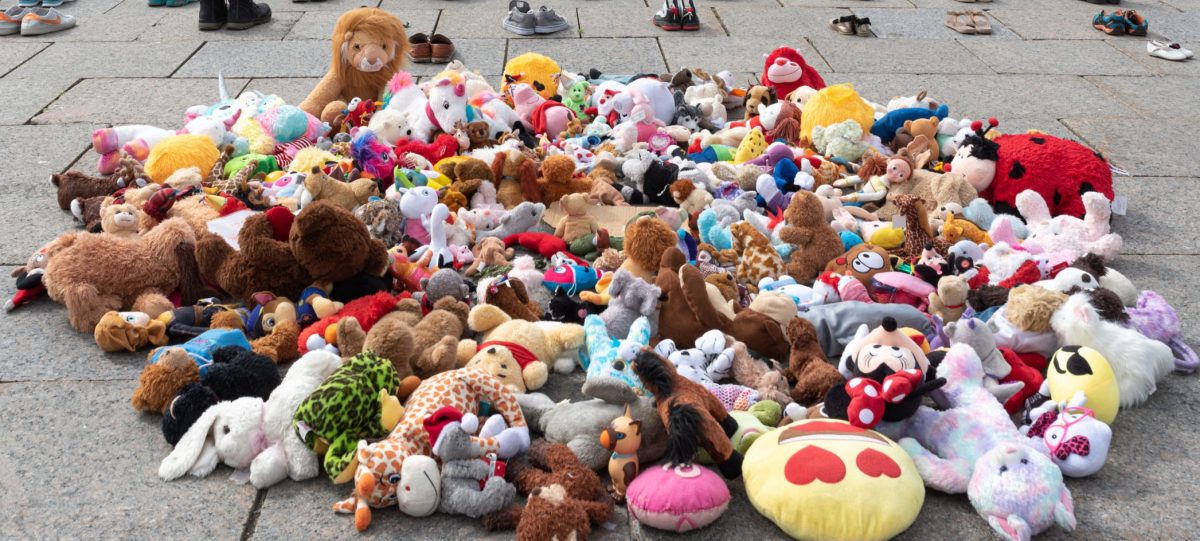By Archbishop Fred Hiltz
Jeremiah 23:1-6, Psalm 23, Ephesians 2:11-22, Mark 6:30-34, 53-56
Well, as Peter said on the Mount of Transfiguration with Jesus “Lord, it is good to be here.” It is so good to be here with you this morning. It has been such a very long time…almost a whole year! The last time I was with you was for your Long Retreat in 2020…and a beautiful week it was.
As it is your joy to welcome back a number of people to preside at eucharist, so it is our joy to come…to join you in reflecting on The Word of God, in praying for the church and the world, and in breaking bread…knowing afresh the blessings of our life in Christ.
What a marvelous set of readings to ponder today!
In the reading from Jeremiah we hear The Lord speaking of a time when he will raise up leaders who will shepherd his people after the manner of his own regard for them. It will be a time of homecoming and healing and hope for a brighter future. People will no longer live in the shadows of despair and fear. None shall be ‘missing’ or ‘forgotten’. It will be a time when The Lord’s Anointed One will be their Shepherd, holding all with mercy in his heart and executing justice and righteousness in such a way that everyone knows the blessings of God.
What a timely text for our reflection at this time in the history of our country.
In The Gospel reading we hear of Jesus’ compassion for the crowds. He saw them as being “like sheep without a shepherd”. As the First Nations Version of the gospel reads, the people are longing “to hear more and more stories about Creator’s Good Road” – how to get on it and to walk it daily. We hear of how the people brought their sick on “sleeping bundles,” trusting in his mercy to reach out and touch them that they might be healed of their infirmities.
In the last 25 years I, along with countless others, have come to appreciate the way indigenous peoples speak of Jesus as “the Great Pain Bearer, the Great Healer, the One who sets us free.”
When Indigenous Peoples gather in Sacred Circles for teaching, for discerning the leading of the Great Spirit, for taking next steps along paths of that lead to newness of life, there is always a time dedicated for the ministry of healing, and it is never rushed. There is plenty of time for prayer and anointing for relief from physical pain, emotional pain, social pain, and spiritual pain. There is time for sharing of stories, expressions of apology and commitments to unwavering companionship in journeys of healing – as individuals and as communities.
As I speak, I anticipate being present for such a gathering at the end of September in Waskaganish in Cree Nation Territory in northern Quebec.
Gatherings of this kind these days will surely include the acknowledgement of the trauma many Indigenous Peoples are experiencing and the shame that many other Canadians are feeling in coming to terms with the terrible truth about the number of Indigenous children who died in Residential Schools and were buried in unmarked graves – well in excess of 1000 discovered to date!
This year, Canada Day was like none other in a very long time. Across the country flags were lowered to half mast in honor of these “forgotten children.” I call them ‘the holy innocents’ of Canada. There were fewer parades and fireworks. When and where people did gather there was a lot more orange than red and white to be seen – a testament to people’s remembrance of these “holy innocents.”
Remembering them in my own prayers in recent weeks I have found myself drawn to that well known text from Isaiah – “a little child shall lead them” (Isaiah 11:6). It is the very jewel at the heart of several announcements proclaiming the advent of the Messiah. Many a carol of Advent and Christmas has been inspired by it. I think especially of “All Poor Folk and Humble” and these lovely words:
The Christ child will lead us,
the good shepherd feed us,
and with us abide till his day.
Then hatred he’ll banish,
then sorrow will vanish,
and death and despair flee away.
(Common Praise 151)
I think of how Herbert O’Driscoll speaks of Jesus as The Child of Peace, The Lord of Life. I think of how he welcomed children, how he taught the people about their special place in the kindom he was proclaiming, and how they had much to teach us about how to embrace the gospel with a sense of adventure!
As I think about those dear children whose precious remains lie in unmarked graves on Residential School grounds far from their home communities, I weep with you and many others. But I have a strong sense that they are the very ones who will help us hear and acknowledge what Murray Sinclair has said: that “the truth is hard…reconciliation is harder.”
I believe these little ones will lead this country on to paths of reconciliation and peace and into a new beginning.
In fact I think they are already leading us.
In recent weeks they have moved hundreds and hundreds of people to place shoes and sneakers and teddies and candles on the steps of government buildings and churches across the country. They have moved many to stand together in calling for a National Day of Mourning. They are stirring up the conscience of the country to revisit the report of The Truth and Reconciliation Commission and to honestly assess the pace and depth of commitment with which we are responding to the 94 Calls to Action.
These little ones are calling us not only to know our history, including the dark chapters of the era of the Residential Schools, but to own the truth that we are the makers of history now and they are inspiring us to make good history, deeply grounded in what the Lord requires of us: ”to love kindness, to do justice and to walk humbly with God” (Micah 6:8).
They are calling us to faithfulness in embracing the Seven Grandfather Teachings: love, respect, truth, honesty, wisdom, courage, and humility.
They are calling us to renewed and unwavering devotion to two of our baptismal vows: “to respect the dignity of every human being and to strive for justice and peace among all people.”
“Remembering The Children” we prayed back in 2009: “we dare to dream of a path of reconciliation.” If I have learned anything about reconciliation it is this – it cannot be rushed, it cannot be imposed, it cannot be assumed. It is about patience in listening to stories that need to be told and reverenced. It is about an attentiveness of ear, eye, and heart to signs that reconciliation is beginning to emerge, and then a great gentleness in tending those shoots as they begin to bud with a beauty beyond our imagining.
People embrace the work of reconciliation from a number of faith perspectives. Ours is grounded in Christ, described in today’s text from Paul’s letter to the Ephesians as our Great Peace (First Nations Version – FNV). He is the one who recreates people, making a new humanity, bringing us all together in the paths of peace.
While most translations of the great text from Ephesians 2:19 read like this:
“You are no longer strangers and aliens but citizens with the saints and members of the household of God.”
the FNV reads:
“Now we are his holy people, and members of one new nation. No one is on the outside of this great family that our Father is creating.”
While most translations of Ephesians 2:20-22 read like this:
“We are built upon the foundation of the apostles and martyrs with Christ Jesus as the cornerstone, and in him the whole body is joined together and grows into a holy temple in the Lord.”
The FNV reads:
“We are all related to one another and initiated into Creator’s Lodge that is built together with wooden poles – the message bearers and the prophets of old. Creator Sets Free (Jesus) is the main pole binding us together like branches weaved into his Sacred Lodge. Joined together in this way we all become a dwelling place for his Spirit.”
What a wonderful way to think of Christ and his ministry of gathering us all together into The Lodge of his very own making – a lodge in which there are no outsiders, a lodge in which there is place and respect, justice and peace for everyone, without exception.
Within that Lodge into which we have been initiated, let us pray for grace that in our labors we be modest, humble and constant – to the glory of his great name and the good of all people. Amen.





